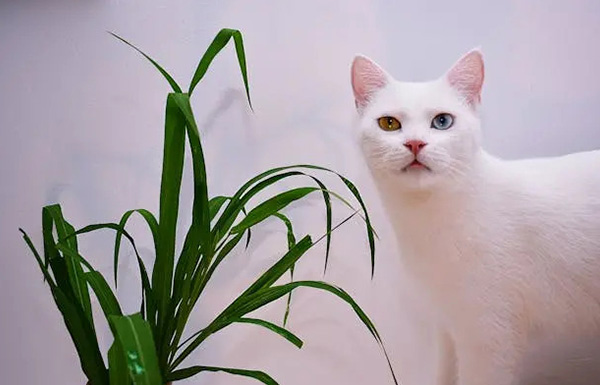Spinach is a part of the diet in many homes. People include it as part of their healthy diet. It has many benefits. It is called a superfood with anti-cancer, anti-inflammatory, anti-obesity, and triglycerides-lowering properties. Hence, health and fitness-conscious people eat it to boost their health.
Since spinach is a healthy source of food, you may wonder, can cats eat spinach? In this article we will learn the following things:
- Can cats eat spinach leaves?
- What are the health benefits and possible risks of feeding spinach to cats?
Can Cats Eat Spinach?
Let’s suppose you have cooked spinach and you may be wondering if you could share it with your kitty as well. If you humans can eat spinach, can cats eat it too?
Yes there is no harm in cats eating spinach. Some felines would enjoy it without any issues. Cats are obligate carnivores. Obligate carnivores must have animal products in their diet to provide them with essential nutrients. However, fruits and vegetables can be included in your cat’s diet. They can be beneficial for them if eaten in moderation.
Is Spinach Good For Cats?
There is no scientific research on if cats should eat spinach. But one study in geriatric cats shows that fruits and vegetables increased the cats lean body mass and improved their kidney function.
Spinach is rich in nutritional benefits. It has vitamin A, B6, and K, fiber, magnesium, manganese potassium, folic acid, iron and calcium. These are beneficial for cats in small amounts.And while spinach can be added to a cat’s diet, you can never replace it with meat. Although it is not a common ingredient in commercial cat food, it is found in some brands of canned cat food.
Furthermore, feeding a cat with spinach in large amounts can lead to digestive issues. Additionally oxalic acid found in spinach can cause urinary tract issues. Hence, moderation is the key.
Is Spinach Toxic To Cats?
Spinach is not toxic for cats nor is spinach bad for cats. It can be a healthy addition to your cat’s diet. But it should be not more than 10 percent of her daily calorie intake. A high proportion of it will unbalance the diet.
Cats need approximately 200 calories per day. Since spinach is very low in calories, it would be hard to give the cat too much of it. If a cat has any history of kidney stones, bladder stones, or any abnormal urinary symptoms then it is advisable to avoid spinach.
Can Cats Eat Cooked Spinach?
When it comes to feeding spinach to cats the only concern is spinach is high in oxalates. This compound is known to increase kidney or bladder stones if consumed in high amounts. Thus, it is advised to feed your cats in a balanced amount. Or to completely avoid it if your cat is prone to any urinary problems.
Cooking spinach decreases the amount of oxalates present. Therefore, when you feed cooked spinach it decreases the potential risk.
It is best to steam or gently saute it without adding any oils or spices. Avoid boiling spinach because it decreases the beneficial nutrients present in it.
Can Cats Eat Raw Spinach?
Cats with a history of urinary issues should not be given raw spinach because it contains high amounts of oxalate. However, otherwise it is okay to feed raw spinach to cats in moderation.
Whether spinach is good or bad for the cats, it makes us curious about, do cats like spinach taste.
It might be surprising, but some cats enjoy the taste of spinach. This may be due to the high water content. And for some reason, they enjoy chowing down on the grass outside. Hence they enjoy eating something similar to it.
Can Kittens Eat Spinach?
As a source of fiber vitamins and water, cooking spinach can be fed to your kitten’s diet every so often. But avoid onions and garlic as these are toxic for cats.
Conclusion
To conclude, spinach is a source of a lot of health benefits whether for humans or cats. Hence, it is safe to feed your felines with spinach if it has no urinary issues. There are no potential risks when you feed a healthy cat spinach. But it’s better to give it cooked rather than raw. Therefore, you can give your cats some cooked spinach for added nutrition.

Thanks for sharing. I read many of your blog posts, cool, your blog is very good. https://www.binance.info/vi/register?ref=MFN0EVO1
Can you be more specific about the content of your article? After reading it, I still have some doubts. Hope you can help me.